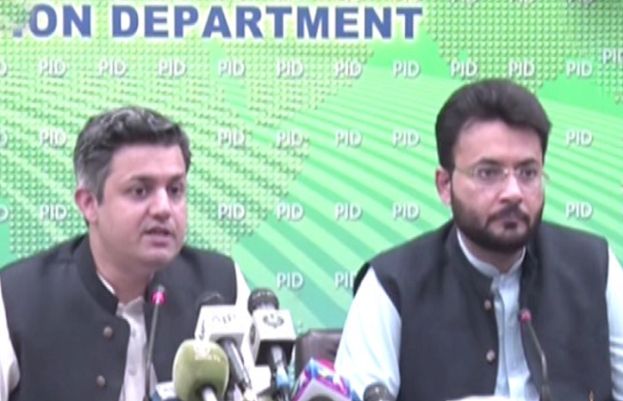
Speaking during a press conference in Islamabad along with the State Minister for Information and Broadcasting Farrukh Habib, Azhar said that this increase in power tariff of Rs1.39 will be applicable from November 1.
"We now have the capacity to generate enough electricity, therefore we want to increase the demand. We introduced an industrial package last year which has been successful as we have seen a 15% increase in demand," the minister said.
"Meanwhile, we have also seen a 6-7% increase in the demand for electricity as the peak hours for the industrial sector have been removed."
The minister said that keeping in view the success of this package, the government decided to introduce another package — known as the seasonal electricity package — under which consumers who use an extra unit compared to their last year's usage will get an extra discount.
Shedding light on further steps, he said that the government has closed old generation companies (gencos), while the National Electric Power Regulatory Authority (NEPRA) has also revised its target from 15% to 13%.
"Despite all this, there is a difference between Rs1.5 to Rs2 in the rate at which the government is purchasing and selling electricity, this is the reason behind surging circular debt," he said.
"A major chunk of circular debt is because of capacity payments. And because of the wrong decisions taken by the previous governments, we have to increase the power tariff," he said, adding that the government had proposed to NEPRA that the power tariff should be increased by Rs1.49 per unit.
"This increase in power tariff will not be applicable to the lifeline and domestic consumers — who use less than200 units of electricity — hence, this increase is not applicable on the 46% of the consumer base," he clarified.
Moreover, this will not affect the seasonal electricity package or the industrial package.
Worldwide gas crisis
Azhar said another major issue the country is facing is related to the shortage of gas.
“Currently, the entire world is facing a gas crisis — whether it's a developed country or an under-developed country — because the supply of gas has been affected due to COVID-19, while prices also surged,” he added
“Pakistan, however, did not face such an intense gas crisis,” the minister said, adding that the government is working on the North-South Gas Pipeline Project with Russia.
"We are also planning to change the law to provide LNG to domestic consumers,” he said. “The government will not curtail demand without ensuring proper gas supply.”
He continued: "In order to resolve the gas crisis issue, we are blocking all ongoing and future gas schemes.”
New pricing mechanism in pipeline
The minister wrote on Twitter: "Local gas reserves depleting at a rate of 9% per annum."
The government does not have legal mechanism to collect costs of imported gas from consumers, he said, adding, "We have forged a consensus on new pricing mechanism but till its legislation, government is halting all expansion in domestic gas networks."
"Currently, the provision of piped gas to domestic households is 28% of all households," he tweeted.
from latest-news - SUCH TV https://ift.tt/3j6dYjg
via IFTTT
